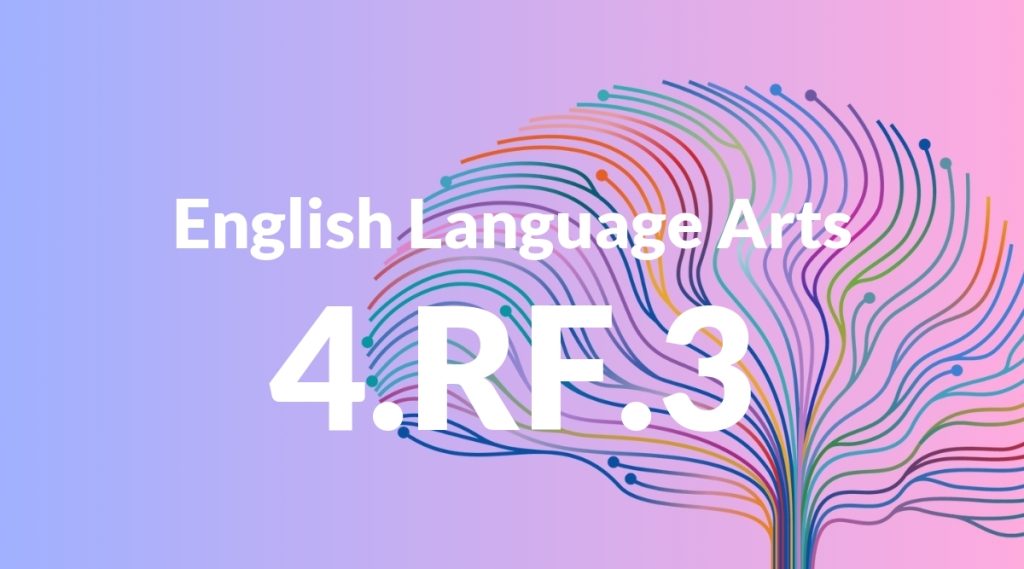Standard: 4.RF.3 – Know and apply grade-level phonics and word analysis skills in decoding words.
Grade level: Grade 4
Subject: English Language Arts
Domain: Reading: Foundational Skills
Teacher Overview
This standard focuses on ensuring that students have a solid grasp of phonics and word analysis skills, which are crucial for decoding words. This foundational skill is essential for reading fluency and comprehension, and it supports students’ overall literacy development. Before tackling this standard, students should be comfortable with basic phonics concepts, including common letter-sound correspondences and the ability to decode simple words.
By mastering this standard, students will be prepared to tackle more complex texts with greater ease and will have a stronger vocabulary base, which will benefit their reading and writing skills across all subjects.
Common Misconception 1
A common misconception is that all words can be sounded out easily. This is incorrect because many words in English do not follow regular phonics rules and need to be learned as exceptions.
Intervention 1
To address this misconception, provide students with a list of irregular words and engage them in activities that highlight these exceptions. Use games, flashcards, and reading exercises to reinforce their understanding.
Common Misconception 2
Another misconception is that once students know phonics rules, they no longer need to practice them. This is incorrect because continued practice is necessary to reinforce these skills and apply them in different contexts.
Intervention 2
Incorporate regular practice sessions that include a variety of activities, such as reading aloud, word games, and writing exercises, to ensure that students continue to apply and reinforce their phonics knowledge.
Prerequisite Knowledge
Students should have a basic understanding of phonics, including knowledge of common letter-sound correspondences, and the ability to decode simple words.
Subsequent Knowledge
After mastering this standard, students will be able to read more complex texts with greater fluency and comprehension, and they will have a stronger vocabulary for both reading and writing tasks.
Instructional Activities
- Phonics flashcard games
- Reading aloud sessions with a focus on new words
- Word analysis worksheets
- Interactive spelling activities
- Group reading and discussion of short stories




